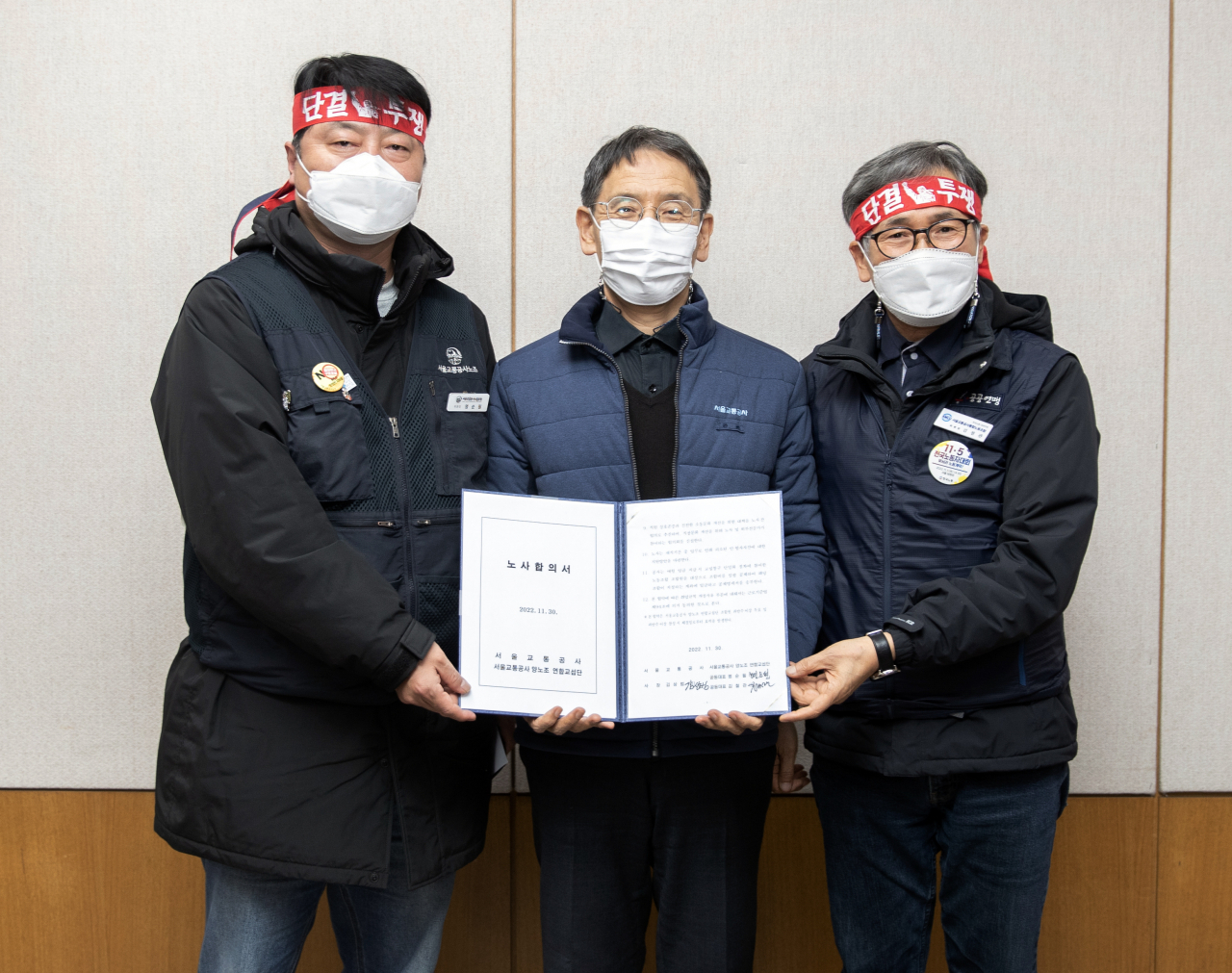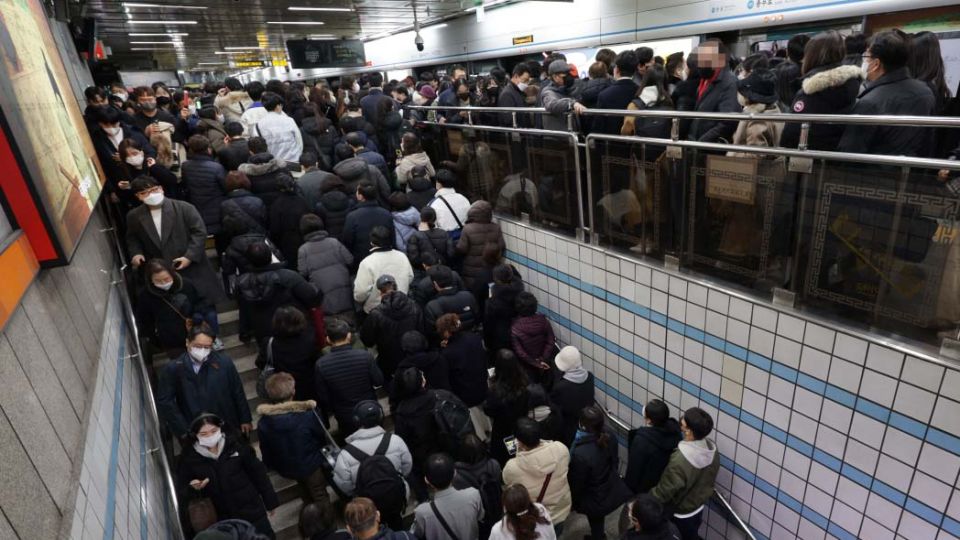December 1, 2022
SEOUL – Seoul subway operations returned at full capacity early Thursday morning after a late-night agreement by management to withdraw a staff downsizing plan ended the strike.
Some parts of Line Nos. 1, 3 and 4, however, might not run at full capacity due to separate work-to-rule action by labor unions of Korail, another subway system operator in Greater Seoul.
Workers on Line Nos. 1 through 8 went on strike over revived plans to reduce staff by not replacing retiring workers. The subway operator had abandoned the plans in a 2021 labor-management agreement.
The state-run Seoul Transportation Corp., Seoul’s main subway operator, agreed to the complete withdrawal of the plan at around midnight Wednesday, after about four hours of labor-management negotiations at its headquarters in Seongdong-gu, eastern Seoul.
The agreement also includes an increase in safety-related staff, and a pay raise of 1.4 percent. There had been no pay raise so far this year.
Under the agreement, the two sides will explore ways to reduce losses from free train travel schemes for those including senior citizens, in part by revising the rules to mobilize more state funding to offset the losses. They also pledged to enhance worksite safety for subway workers.
The agreement was struck soon after public transit services were most affected in the evening due to reduced provision, although Seoul Transportation Corp. drafted in emergency workers on Wednesday to keep services going.
At its peak at around 7 p.m. on Wednesday, trains suffered half-hour delays on Line Nos. 1 and 2. A reported minor breakdown of a train on Line No. 3 added to disruptions.
The fire department in Guro-gu, Seoul, which supervises one of Seoul’s busiest subway stations, Sindorim, received two emergency calls at 7:15 p.m. over safety concerns of overcrowding due to the reduced service, but no incident was reported.
The reduced service Wednesday was predictable, as Seoul had earlier estimated soon after the strike that there would be 15-30 percent fewer trains starting from late morning.
This is the latest development in the country’s sweeping industrial actions. Unionized cargo truckers entered their eighth day of a walkout Thursday, calling for the expansion of a guaranteed minimum freight rate policy for truckers. The move, however, faced government threats on Wednesday to repeal the basic rate policy, should unionized truckers refuse an executive order to return to work.
In the meantime, unionized railway workers under Korail are scheduled for a strike on Friday due to a labor-management disagreement over wages.

Representatives of Seoul Transportation Corp. unionized workers and management pose for a photo on Thursday at around midnight to celebrate the labor-management agreement. (Seoul Transportation Corp.)


